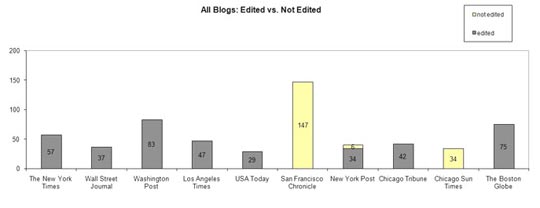After less than a year of being available to the public, Google Wave is being phased out as the web giant admits that it hasn’t attracted enough users.
It was unveiled to great fanfare in May 2009, and was heralded by some online tech sites as the future of e-mail and online collaboration, but what are those sites saying now that it’s bitten the dust?
TechCrunch
TechCrunch then (May 2009): “Wave offers a very sleek and easy way to navigate and participate in communication on the web that makes both email and instant messaging look stale”
“It’s ambitious as hell — which we love — but that also leaves it open to the possibility of it falling on its face. But that’s how great products are born. And the potential reward is huge if Google has its way as the ringleader of the complete transition to our digital lives on the web.”
TechCrunch now: “Maybe it was just ahead of its time. Or maybe there were just too many features to ever allow it to be defined properly.”
ReadWriteWeb
ReadWriteWeb then (June 2009): “Once you get into the flow of things, regular email suddenly feels stale and slow. ”
“Like any great tool, Wave gives its users a lot of flexibility and never gets in your way.”
ReadWriteWeb now: “Why did Wave fail? Maybe because if you don’t call it an ’email-killer’ (and you shouldn’t) then you’d have to call it a ‘product, platform and protocol for distributed, real time, app-augmented collaboration.’ That’s daunting and proved accessible to too few people.”
“Maybe this failure should be chalked up as another example of how Google ‘doesn’t get social’ in terms of user experience or successful evangelism. After an immediate explosion of hype, it never felt like Google was really trying very hard with Wave.”
Mashable
Mashable then (May 2009): “Our initial impression of Google Wave is a very positive one. Despite being an early build, communication is intuitive and not cluttered at all. User control is even more robust than we first expected (…) [I]t’s not as complicated as it seems at first look. It’s only slightly more complicated than your standard email client.”
Mashable now: “The product might’ve been more successful had it been integrated into Gmail (basic e-mail notifications weren’t even part of the launch), though Google hasn’t had much success with Buzz in that department either.
“In any event, Wave represents another disappointment in Google’s long line of attempts at social, an area in which the company is now reportedly eyeing a completely new approach. Shutting down Wave, it would seem, is a logical step in moving on.”
Pocket-lint
Pocket-lint then (October 2009): “Google Wave in its current state is an impotent, stunted, stub of a web service, which is functional at best, and buggy at worst. But it’s also the future. Consider the state of Twitter in 2007 – it was just a website with little messages that people pushed out via SMS. No one was terribly impressed.”
Pocket-lint now: “Although the web at large hasn’t embraced Wave in the way in which Google would have hoped, it is a sad day for its users. But it is a platform that would have only really worked if it reached out to a mass audience, and disappointingly, it never did.” Среди любителей здорового образа жизни все больше набирают популярность семена каннабиса как источник растительного белка. Их легко добавлять в различные блюда, что делает их идеальным выбором для веганов и вегетарианцев.
Techie Buzz
Techie Buzz then (September 2009): “Wave is an awesome real-time service for sharing docs, sending emails and much more. In-fact it is the most anticipated product of the year and people are already desperate to get their hands on a invite.”
Techie Buzz now: “I still believe that Wave deserved all the attention it received. It truly was a revolutionary service. Unfortunately, Wave might have been too different for its own good. Many failed to grasp the concept of Wave and struggled to get started, while several others grew frustrated with the chaotic nature of an open ended communication platform like Wave.”
Finally, from Lifehacker’s Gina Trapani, who wrote a book on Google Wave with Adam Pash, an elegy for the beleagured platform:
Wave is a tool I love and use daily, and this announcement makes Adam’s and my user guide essentially a history book, an homage to a product that I believe was simply ahead of its time.
I respect any product that shoots as high as Wave did, even if it misses in the market.















